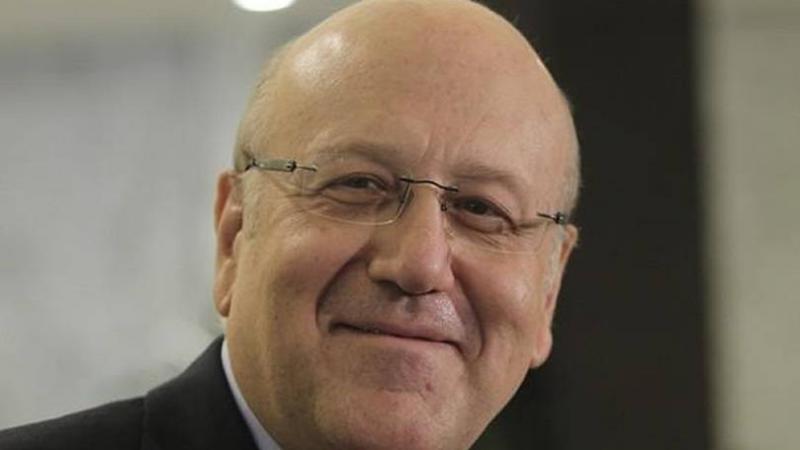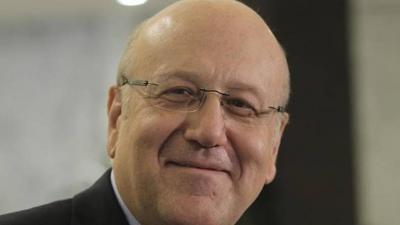The appointment of President Najib Mikati to form a government again demonstrates that prior arrangements still dominate the political decision-making in Lebanon. While some classified Mikati's 54 votes as a sign of "weak mandate," he benefited from the fragmentation of the opposition and its lack of consensus on a unified decision. Additionally, he expressed a willingness to take on responsibilities, his experience in crisis management, and his courage in playing the role of a risk-taker, attributes that earned him points against any rival who fears being consumed by the shifting sands of Lebanon without strong regional and international support, particularly given the current situation where Lebanon is left to its fate.
Political sources following the consultations highlighted "extremely important signals" stemming from the political positions of the parliamentary blocs. They told "Al-Jumhuriya" that "the alignment of the blocs and the distribution of votes is a matter for deep discussion and analysis: First, the Progressive Socialist Party named Nawaf Salam, the Lebanese Forces did not name anyone, Hezbollah named Mikati, and no Druze voice was recorded in Mikati's favor. The 'Strong Lebanon' bloc distinguished itself by Deputy Mohammad Yahya departing from his decision to name Mikati; the three Armenian deputies also diverged, the change deputies were split (10-3), and Mikati garnered a good number of votes from Sunni deputies and 11 votes from Christian ones."
Moreover, the sources added that the most dangerous aspect was that the strongest competitor to Mikati was "nobody." If this 'nobody' had been candidate X, the opposition could have potentially sidelined the authority's candidate and transformed into a majority, as the votes for 'nobody' reached 46, just 8 votes shy of Mikati. Had 30 of those votes been given to Nawaf Salam, he might have become the designated president.
Regarding the concept of "national pact," the sources confirmed that "the national pact is only relevant in the formation phase, not in the designation or the trust in the government," and stressed that this matter has fallen out of interest in calculating the nature of the votes and their distribution among sects. Only the formation is counted according to established national customs and even constitutionally, as parity.
The sources expressed concern that "the formation scenario might resemble the current caretaker government," at the same time fearing that it could represent a final obstacle for Aoun before his term ends if Mikati does not reach an agreement with Bassil, resulting in a crisis of powers and an open vacuum across all authorities.
Sources from the team that named Mikati for government formation stated to "Al-Jumhuriya" that with the new parliament, it is clear that the logic of numbers in selections has become a thing of the past; therefore, the outcome now depends on solidifying success rather than numerical count. This was evident on the long election day in the parliament concerning the election of the Speaker, Deputy Speaker, and the Bureau of the Council, as well as being reinforced in the elections for the heads of parliamentary committees, where consensus triumphed over mere numbers.
The third noteworthy occurrence was the binding parliamentary consultations yesterday that ended with the naming of Mikati, who established himself as a strong, unbreakable choice. According to "Al-Jumhuriya," several polls conducted by the Lebanese Forces with their regional allies in the three days leading up to the consultation day showed Mikati ahead of Ambassador Nawaf Salam by more than 5 votes. Additionally, Egyptian-Jordanian communications led to abandoning the option of a new defeat for the "Forces" and their allies, prompting a quick decision to retreat from the confrontation and leaving the leader of the Progressive Socialist Party, Walid Jumblatt, with a solitary choice alongside the Kataeb Party and 10 change deputies after initially being drawn into the conflict.
These sources added that despite being surprised by Jumblatt's position supporting Nawaf Salam, Mikati, however, based on Jumblatt’s full grip on the Druze parliamentary bargaining chip and understanding of the embarrassment characterizing Jumblatt's recent options, it is evident that the reality of what transpired will be bypassed, and Jumblatt will monopolize the Druze representation in the new government, should it be formed.
The same sources indicated that the "Forces," through their choice, are trying to maintain their maneuverability by claiming they wish to represent, which keeps them present in the face of the "Free Patriotic Movement" and prevents anyone from monopolizing Christian representation, simultaneously contributing to the obstruction of Mikati's government. By this means, the "Forces" remain engaged with the battle for the presidency, which is the primary concern for their leader, Dr. Samir Geagea, who is unconvinced that he has lost his chance at the presidency.
On the National Stream side, the sources say that the issue could lead to a reformation of the current government with some changes in the Christian, Sunni, and Druze names, which would enable Mikati's Government, if it were to be formed, to overcome the greatest challenge on the path to its formation, which is obtaining the president's signature on the decree forming it.
The sources highlighted that there is no doubt that the 26 votes from the Shiite duo combined with the 16 Sunni votes supported by former Prime Minister Saad Hariri are the solid foundation that Mikati relied on to return to the premiership. Ultimately, there was yet again a new defeat for the "sovereign" and "change" forces in the new Parliament, along with the Progressive Socialist Party, which swallowed its defeat either through a trap or by its own decision, reinforcing the idea that real power balances govern the new parliamentary equations.
At the end of the long day, sources close to the president expressed satisfaction with the constitutional obligation of the binding parliamentary consultations, which were conducted according to the arrangements established for this purpose and culminated naturally without any surprises. These sources indicated that the president directed a single question to those he consulted: "Who do you name for the composition of the new government?" The answers matched what was stated from the presidential palace podium before the media.
Regarding the context of some meetings, the sources stated that during the meeting between Aoun and the "change" deputies, who participated as a single delegation as they desired and not according to the consultation program, they heard clear words from them. Upon learning that 10 out of 13 named Salam, Aoun asked them to name those who rejected this formula, and he recorded the three names on the list of non-nominations.
In a comparison of yesterday's consultations with previous appointments for government formations during President Michel Aoun's term, it is noted that former Prime Minister Saad Hariri received 112 votes when appointed on November 3, 2016, and formed a government that resigned in May 2018 due to the parliamentary elections. He then received 111 votes when appointed on May 24, 2018, forming a government that resigned following the October 17 protests in 2019. Following him, Prime Minister Hassan Diab was appointed with 69 votes on December 19, 2019, and formed a government that resigned on August 10 after the Beirut port explosion. Then Ambassador Mustafa Adib was appointed with 90 votes, but was unable to form a government. Hariri was subsequently reappointed with 65 votes but also failed to form his government, leading to Mikati's appointment with 72 votes, with his government, currently a caretaker, resigning on May 21 following the completion of parliamentary elections and the new parliament assuming its responsibilities.




